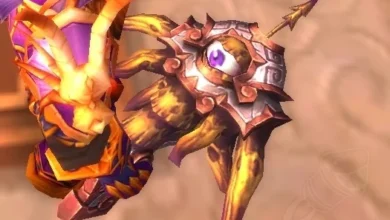Behind the Voice Actors: The Unsung Heroes of Animation and Gaming

Behind the Voice is an art form that brings characters to life, yet the performers behind these iconic voices often remain unseen. From animated films and TV Behind the Voice Actors shows to video games and commercials, voice actors play a crucial role in storytelling. This article delves into the world of voice acting, exploring the skills required, the challenges faced, and some of the most legendary voice actors in the industry.
What Does a Voice Actor Do?
A voice actor (or voice-over artist) provides vocal performances for various media, including:
- Animation (cartoons, anime, animated films)
- Video games (character voices, narration)
- Commercials & Advertising (radio ads, TV promotions)
- Audiobooks & Podcasts (narration, character voices)
- Dubbing (translating foreign films or shows)
Unlike on-screen actors, voice actors rely solely on their vocal range, tone, and emotional delivery to convey a character’s personality.
Skills Required to Be a Successful Voice Actor
Becoming a professional voice actor requires more than just a good voice. Here are some essential skills:
1. Vocal Range & Versatility
A great voice actor can perform multiple voices, accents, and emotions. For example:
- Mel Blanc (the “Man of a Thousand Voices”) voiced Bugs Bunny, Daffy Duck, and many other Looney Tunes characters.
- Tara Strong has voiced characters like Bubbles (The Powerpuff Girls), Harley Quinn (Batman), and Twilight Sparkle (My Little Pony).
2. Acting Ability
Voice acting is still acting—requiring emotional depth, timing, and improvisation. Many successful voice actors have theater or on-screen acting backgrounds.
3. Breathing & Diction Control
Proper breath support ensures clear, consistent delivery, especially during long recording sessions.
4. Adaptability
Voice actors must take direction well, adjusting tone, pitch, and pacing based on a director’s feedback.
5. Technical Know-How
Many voice actors now record from home studios, so understanding audio editing (using software like Audacity or Adobe Audition) is a plus.
Challenges Faced by Voice Actors
Despite the glamour of working in animation or gaming, voice acting comes with unique challenges:
1. Lack of Visibility
Unlike screen actors, voice actors rarely get public recognition. Many fans recognize characters but not the voices behind them.
2. Vocal Strain
Performing extreme voices (like screechy or gruff tones) can damage vocal cords over time. Proper warm-ups and technique are crucial.
3. Competitive Industry
Breaking into voice acting is tough, with many aspiring actors competing for limited roles. Networking, persistence, and a strong demo reel are key.
4. Unpredictable Work Schedules
Unlike traditional 9-to-5 jobs, voice acting gigs can be sporadic, requiring financial planning between projects.
Famous Voice Actors & Their Iconic Roles

Here are some of the most legendary voice Behind the Voice Actors actors and the characters they’ve brought to life:
1. Mel Blanc
- Known as: The Man of a Thousand Voices
- Iconic Roles: Bugs Bunny, Daffy Duck, Porky Pig, Barney Rubble (The Flintstones)
2. Tara Strong
- Notable Roles:
- Bubbles (The Powerpuff Girls)
- Harley Quinn (Batman: Arkham Games)
- Twilight Sparkle (My Little Pony: Friendship is Magic)
3. Nolan North
- The “King of Video Game Voice Acting”
- Famous Roles: Nathan Drake (Uncharted), Deadpool (Multiple Marvel Games), Desmond Miles (Assassin’s Creed)
4. Jennifer Hale
- The “Queen of Video Game Voice Acting”
- Legendary Roles:
- Commander Shepard (Mass Effect)
- Samus Aran (Metroid Prime)
- Ashe (Overwatch)
5. James Earl Jones
- Most Recognized For: Darth Vader (Star Wars), Mufasa (The Lion King)
6. Mark Hamill
- From Luke Skywalker to the Joker:
- The Joker (Batman: The Animated Series)
- Fire Lord Ozai (Avatar: The Last Airbender)
7. Grey DeLisle (Griffin)
- Versatile Female Voice Actor
- Famous Roles:
- Daphne (Scooby-Doo)
- Azula (Avatar: The Last Airbender)
- Vicky (The Fairly OddParents)
How to Become a Voice Actor
If you’re interested in pursuing voice acting, here’s a step-by-step guide:
1. Take Acting Classes
Even if you have a great voice, acting training helps with emotional delivery and character development.
2. Practice Voice Modulation
Experiment with different accents, tones, and pitches. Record yourself and analyze your performances.
3. Build a Demo Reel
A voice-over demo showcases your range. Include commercials, animation clips, and narration samples.
4. Create a Home Studio
Invest in a good microphone (e.g., Blue Yeti, Rode NT1) and soundproofing to record professional-quality auditions.
5. Join Voice Acting Platforms
Websites like Voices.com, Voice123, and Casting Call Club help connect actors with gigs.
6. Network in the Industry
Attend conventions (like Anime Expo or Comic-Con) and connect with casting directors on LinkedIn.
7. Audition Consistently
Persistence is key—many famous voice actors faced rejection before landing big roles.
The Future of Voice Acting
With advancements in AI voice synthesis, some worry about voice actors being replaced. However, human emotion and creativity remain irreplaceable in storytelling. Additionally, unions like SAG-AFTRA protect voice actors’ rights, ensuring fair pay and working conditions.
Growing Demand in Gaming & Streaming
As video games and animated series grow in popularity, the demand for skilled voice actors continues to rise.
Conclusion
Voice actors are the unsung heroes behind beloved characters in animation, gaming, and beyond. Their ability to convey emotion, humor, and depth through voice alone makes them indispensable to the entertainment industry. Whether you’re a fan or an aspiring voice actor, understanding the craft behind these performances adds a new layer of appreciation for the art form.



